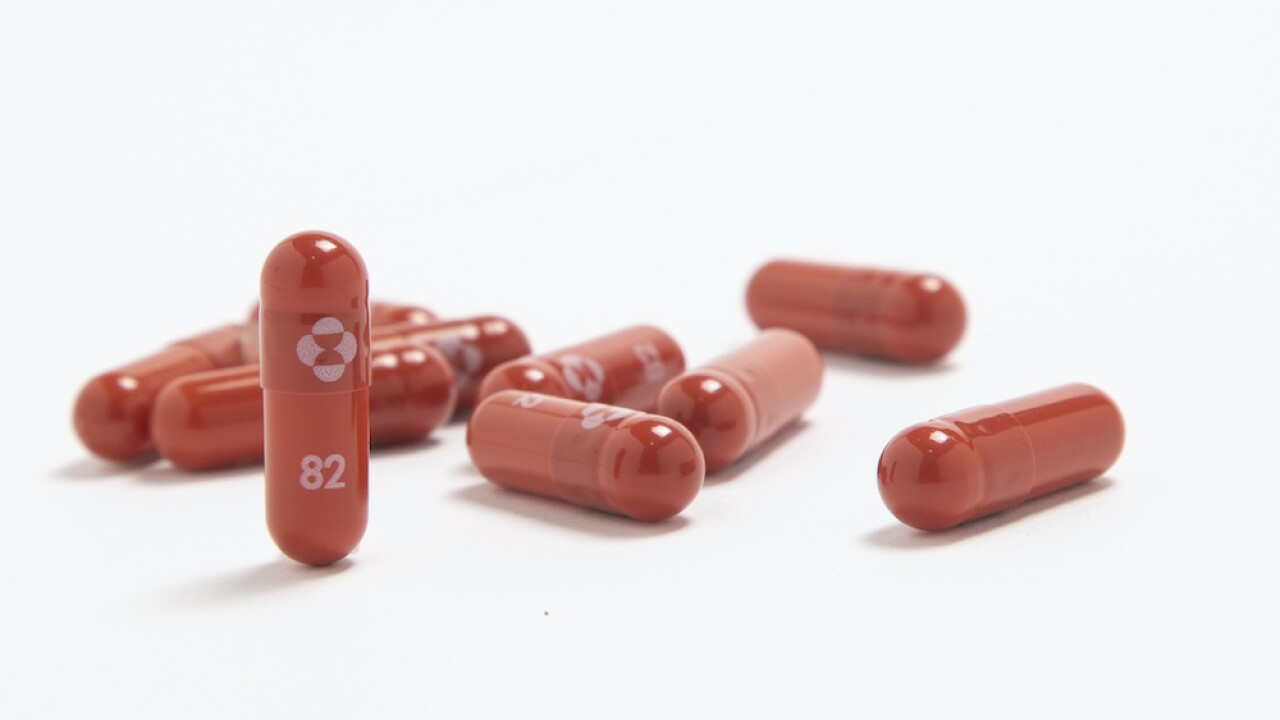SAN DIEGO (KGTV) – Doctors say antiviral pills could be especially important against the omicron variant, but the added protection comes with a risk: overuse of the therapies could pressure the virus into mutating even more.
Drugmaker Merck got a vote of support Tuesday from advisers to the Food and Drug Administration, likely setting the stage for the agency to authorize its anti-COVID pill, molnupiravir, in days. The first doses could start appearing in pharmacies this month.
The drug reduces the risk of a COVID hospitalization in those at high risk by 30 percent, lower than initial projections.
Another pill from Pfizer is not far behind and looks even more effective, with an estimated 89 percent reduction in hospitalization and death.
Doctors say the pills are arriving just in time, with the nation’s first confirmed case of omicron announced Wednesday in California.
“I’d be surprised if these drugs don’t work against this strain as well. So it’s good to have them coming along,” said Dr. Robert Schooley, an infectious disease expert at UC San Diego.
At the moment, infusions of monoclonal antibodies are the best treatments U.S. doctors have to keep someone out of the hospital.
But early research suggests omicron is less vulnerable to these drugs. Monoclonal antibodies work by surrounding the virus’ spike protein and the existing offerings from Regeneron and Eli Lilly were tailored to earlier versions of the virus. Omicron has more than 30 mutations in its spike protein.
Scientists are racing to whether omicron will impact the effectiveness of the upcoming antiviral pills, but there are reasons to believe it will not. The pills target other regions of the virus that are largely unchanged in omicron.
“The drugs should still work for this variant in exactly the same way as it did for alpha or delta or any of the other Greek letters,” said UC San Diego professor Dr. Davey Smith, the chief of infectious disease research.
That’s encouraging, doctors say, but the more we use these antivirals, the more pressure we will put on the virus to evolve.
“In the history of infectious diseases, pretty much every antiviral that’s ever been used will eventually result in some resistance,” said Dr. Christian Ramers of Family Health Centers of San Diego.
Perhaps the most notorious pathogen for drug resistance is HIV. According to the World Health Organization, HIV can build some level of resistance in up to 10 percent of adults starting treatment.
And it’s already happened with a different COVID drug. In a case reported last month, doctors gave a woman in her 70s intravenous remdesivir to fight a persistent COVID infection.
At first, it helped. Then the virus mutated and surged back.
Doctors overcame the infection using another treatment, monoclonal antibodies, and the new variant did not spread. But the episode may offer a warning for the upcoming antiviral pills.
“We shouldn’t oversell these things and think that they are a silver bullet,” Dr. Ramers said. “Yes, they’re going to be useful, but everything is going to have its flaws, and we may actually see resistance in the virus after we start using these.”
“It’s better to have the antiviral than not, but we just have to be aware that resistance is likely to happen,” Dr. Smith said.
Keeping patients isolated while they’re taking antiviral pills should mitigate the risk of spreading a resistant variant, Dr. Schooley said. In addition, patients will take these pills for five days, giving the virus fewer chances to mutate compared to drugs patients take for months or years.
It’s another reason experts say antivirals won’t replace the need for vaccination.




